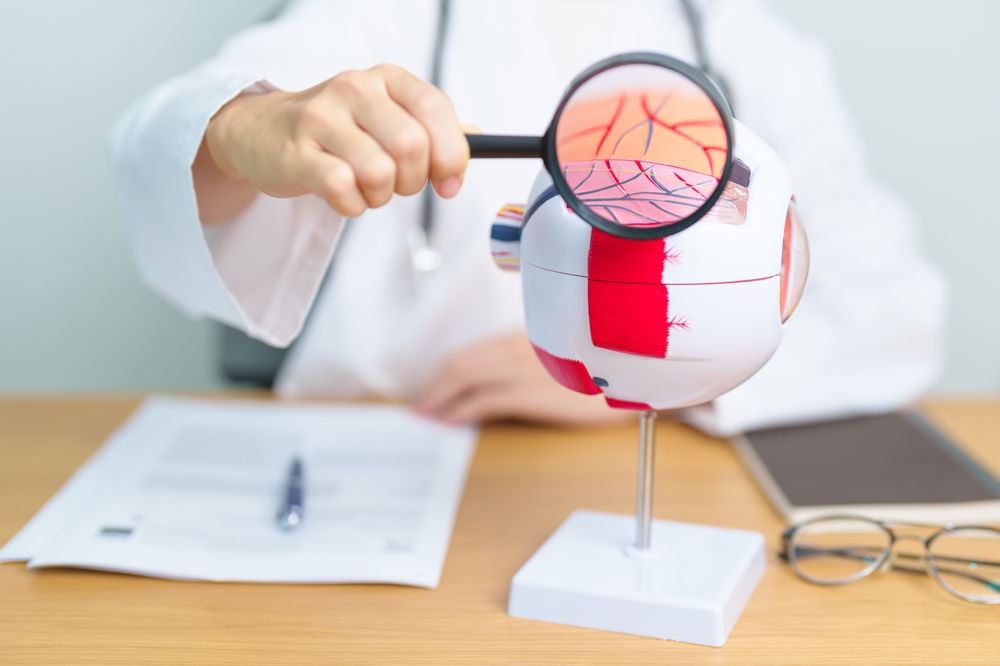 If you have been diagnosed with diabetes, you no doubt understand the importance of monitoring your blood sugar levels to try to keep yourself healthy and prevent other serious conditions like heart disease, stroke, nerve damage, and kidney failure. Another factor you should prioritize is your ocular health. Your vision can be in serious jeopardy due to diabetes-related conditions. Below, the knowledgeable eye doctors at Wiles Eye Center in Kansas City & Saint Joseph, MO describe some of the eye conditions most likely to affect people with diabetes.
If you have been diagnosed with diabetes, you no doubt understand the importance of monitoring your blood sugar levels to try to keep yourself healthy and prevent other serious conditions like heart disease, stroke, nerve damage, and kidney failure. Another factor you should prioritize is your ocular health. Your vision can be in serious jeopardy due to diabetes-related conditions. Below, the knowledgeable eye doctors at Wiles Eye Center in Kansas City & Saint Joseph, MO describe some of the eye conditions most likely to affect people with diabetes.
Diabetic Retinopathy
The biggest vision-related threat to people with diabetes is diabetic retinopathy. Blood sugar spikes can damage the blood vessels inside your retina, causing them to leak and obstruct vision. In more advanced stages of this condition (proliferative diabetic retinopathy), your eye may attempt to generate new blood vessels to better transport blood. Unfortunately, these new vessels are usually faulty, which winds up accelerating the rate of vision impairment.
Macular Edema
Macular edema is a condition in which the retina experiences swelling, which leads to blurry vision. It is more common in people who have diabetic retinopathy because leaky blood vessels can exacerbate this swelling. About one in 14 people with diabetes develop this condition.
Cataracts
Patients with diabetes have been found to develop cataracts more seriously and earlier than people who do not have diabetes. This occurs because high blood sugar levels can harm the eye’s lens. This structural damage then makes the eye more susceptible to cataracts. Fortunately, cataracts can be eliminated with cataract surgery, which swaps out the eye’s natural lens for an artificial lens.
Glaucoma
People with diabetes are also twice as likely to develop glaucoma. Abnormal blood vessels can leave fluids trapped in the eye, increasing intraocular pressure and damaging the optic nerve. Unfortunately, this can lead to irreversible vision damage, so treatment to mitigate the effects is highly recommended.
Protect Your Eyes After a Diabetes Diagnosis
While all adults should schedule periodic eye exams, it is extra important for people with diabetes to undergo regular comprehensive eye tests to check for potentially vision-robbing conditions. Developing a relationship with an eye doctor is critical so that changes to your retina and sight can be monitored. Efficiently diagnosing these conditions allows for better treatment.
However, prevention is even better than treatment. In general, the better you can keep your blood sugar levels normal, the less likely you are to develop the aforementioned diabetes-related eye conditions.
At Wiles Eye Center, Dr. Stephen Wiles, Dr. Rachel Tischinski, and Dr. Erin Gilliland have treated many patients with diabetes to help them maintain high-quality vision throughout their lives. To set up an appointment with one of our experts, please call 816-455-2020 or 816-279-7015.

Comments are closed here.